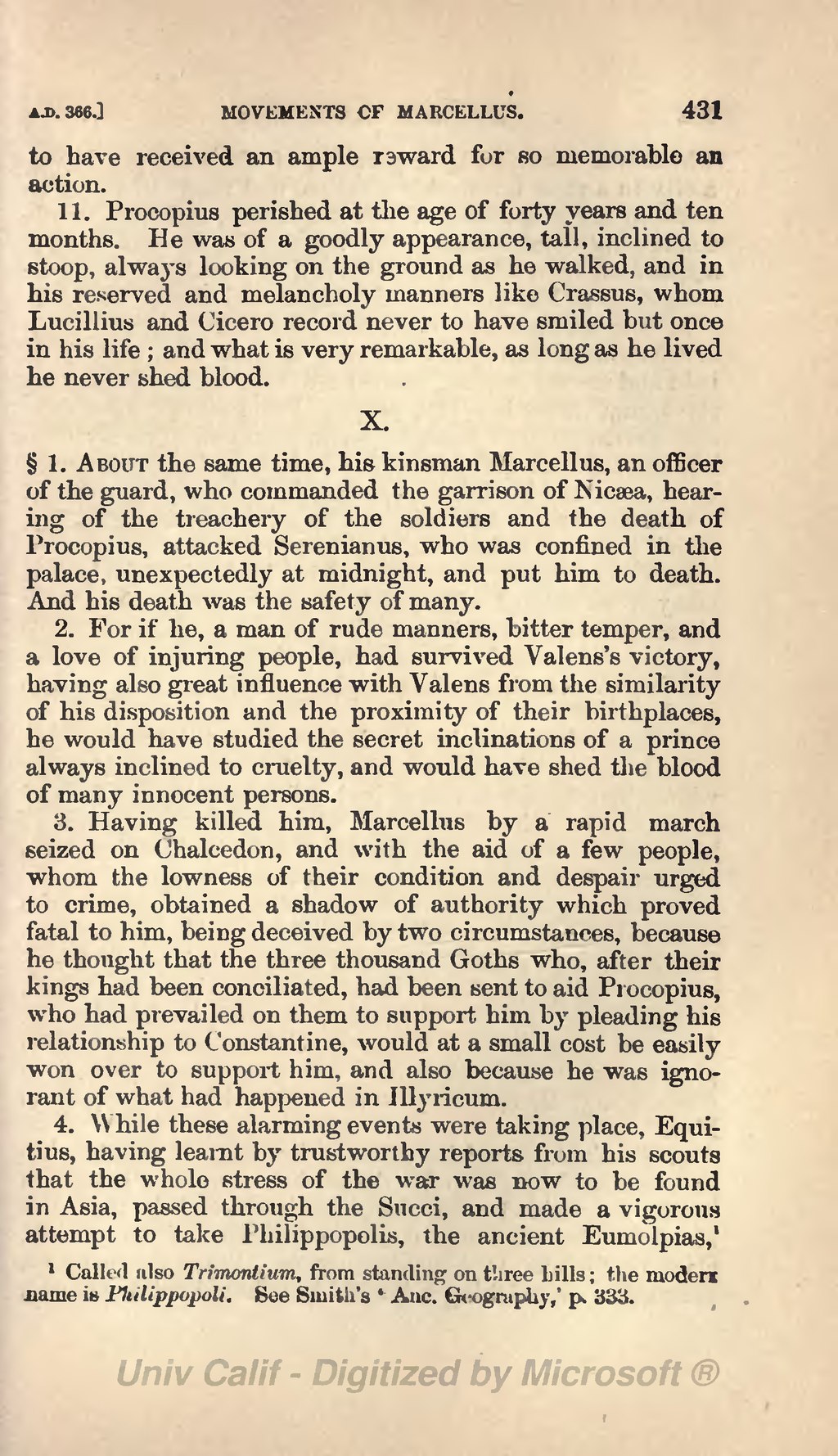have received an ample reward for so memorable an action.
11. Procopius perished at the age of forty years and ten months. He was of a goodly appearance, tall, inclined to stoop, always looking on the ground as he walked, and in his reserved and melancholy manners like Crassus, whom Lucillius and Cicero record never to have smiled but once in his life; and what is very remarkable, as long as he lived he never shed blood.
X
1. About the same time, his kinsman Marcellus, an officer of the guard, who commanded the garrison of Nicaea, hearing of the treachery of the soldiers and the death of Procopius, attacked Serenianus, who was confined in the palace, unexpectedly at midnight, and put him to death. And his death was the safety of many.
2. For if he, a man of rude manners, bitter temper, and a love of injuring people, had survived Valens's victory, having also great influence with Valens from the similarity of his disposition and the proximity of their birthplaces, he would have studied the secret inclinations of a prince always inclined to cruelty, and would have shed the blood of many innocent persons.
3. Having killed him, Marcellus by a rapid march seized on Chalcedon, and with the aid of a few people, whom the lowness of their condition and despair urged to crime, obtained a shadow of authority which proved fatal to him, being deceived by two circumstances, because he thought that the three thousand Goths who, after their kings had been conciliated, had been sent to aid Procopius, who had prevailed on them to support him by pleading his relationship to Constantine, would at a small cost be easily won over to support him, and also because he was ignorant of what had happened in Illyricum.
4. While these alarming events were taking place, Equitius, having learnt by trustworthy reports from his scouts that the whole stress of the war was now to be found in Asia, passed through the Succi, and made a vigorous attempt to take Philippopolis, the ancient Eumolpias, which
